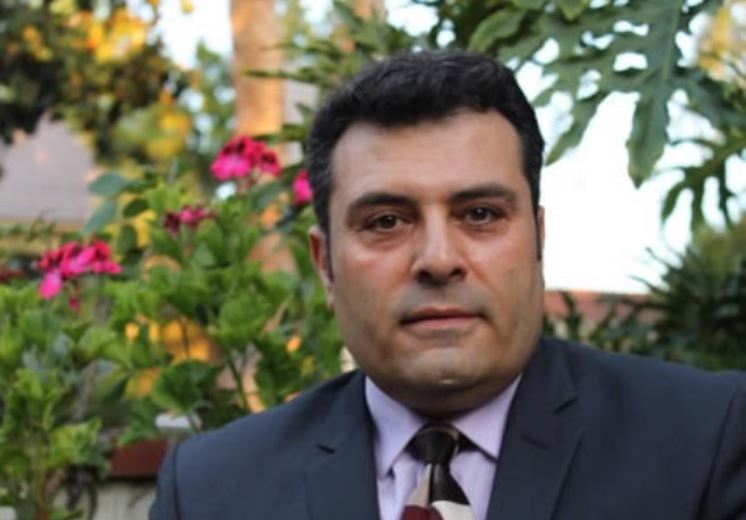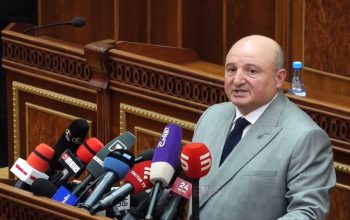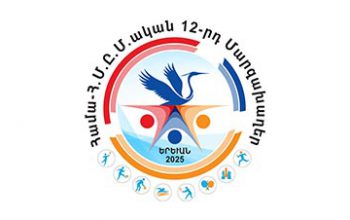By Dr. M. Mkhitar Moradian, PhD
Pope Francis recently met with the dictator of of Azerbaijan, Ilham Aliyev, sparking a wave of criticism and debate. While the Vatican’s commitment to diplomacy and dialogue is well-documented, this particular meeting has raised eyebrows for several significant reasons. Here’s why we and many others believe Pope Francis should not have accepted President Aliyev.
1. Human Rights Violations
Azerbaijan under Aliyev’s leadership has been widely criticized for its human rights record. Reports from organizations such as Human Rights Watch and Amnesty International highlight numerous issues, including suppression of free speech, lack of political freedom, and widespread corruption. Journalists, political activists, and ordinary citizens have faced imprisonment, harassment, and intimidation for voicing dissent. More significantly, the Genocide and ethic cleansing of 120,000 Armenians from their homeland was the climax of these atrocities. Meeting with Aliyev could be perceived as overlooking these severe human rights abuses, undermining the Vatican’s moral authority on advocating for human dignity and freedom.
2. Conflict in Artsakh/Karabakh
The long-standing conflict between Azerbaijan and Armenia over the Artsakh/Karabakh region has resulted in significant loss of life and human suffering, culminating in an ethnic cleansing of an entire Christian Armenian population from their homeland, an act of Genocide. The most recent escalation in 2020 saw heavy casualties and accusations of war crimes. Azerbaijan’s aggressive military actions and alleged use of banned cluster munitions have drawn international condemnation. By engaging with Aliyev, Pope Francis might inadvertently appear to be legitimizing these actions, contrary to the Catholic Church’s teachings on peace and reconciliation. Pope Frances should follow the struggle and freedom fight of devoted Christian leaders in Armenia, i.e., Bagrad Srpazan, a decorated clergy with strong devotion to the faith and Christianity.
3. Suppression of Religious Freedom
Despite being a secular country, Azerbaijan has been accused of restricting religious freedom. Minority religious groups, particularly those not registered with the state, face stringent controls and persecution. This contradicts the Vatican’s core values of religious freedom and interfaith dialogue. Meeting with a leader whose government has a record of restricting these freedoms can be seen as compromising these principles.
4. Symbolic Implications
The Vatican holds a unique position as a moral and spiritual authority. Meetings between the Pope and world leaders are highly symbolic, often interpreted as endorsements. Accepting Aliyev, given his controversial and dictatorial leadership, might send a message that the Vatican is willing to overlook serious ethical and moral concerns for the sake of diplomatic engagement. This could undermine the Vatican’s credibility on human rights issues and weaken its stance in other diplomatic contexts. Accepting a Genocidal dictator is not part of the Vatican doctrine and should be condemned by all.
5. Undermining Efforts for Justice
The global Catholic community and all Christians, particularly those advocating for social justice, might feel betrayed by this meeting. Many Christians and particularly Catholics are deeply involved in promoting human rights and fighting against oppression. By hosting Aliyev, Pope Francis risks alienating these faithful and their vital work. It may also demoralize victims of Aliyev’s regime, who look to the Vatican for moral support and solidarity. Artsakh/Karabakh Armenians see this as legitimizing a Genocide against Christians in their homeland, is this the message Pope intended to send? If so, it was quite successful in alienating the world’s first official Christians, the Armenians.
The Imbalanced Act of Diplomacy?
Pope Francis has a history of using his moral authority to advocate for peace and human rights directly with leaders who might not otherwise be receptive. However, the concerns surrounding this particular meeting are substantial and cannot be easily dismissed. The potential for misinterpretation, the symbolic weight of the Pope’s engagements, and the real-world impact on human rights advocacy must be carefully weighed. In this light, the decision to accept President Aliyev appears fraught with ethical dilemmas and potential negative repercussions. It was morally wrong, period.
In conclusion, while diplomacy and dialogue are core to the Vatican’s mission, the meeting with Aliyev of Azerbaijan raises serious questions. The Pope’s acceptance of such a Genocidal dictator must be scrutinized against the backdrop of the Vatican’s commitment to human rights, peace, and justice. This was a terrible mistake and we hope Pope and the Vatican will come to their senses and correct it. Perhaps, a meeting between Pope and Bagrat Srpazan could be a good start.
After all, Christian moral and ethical values cannot be for sale.




